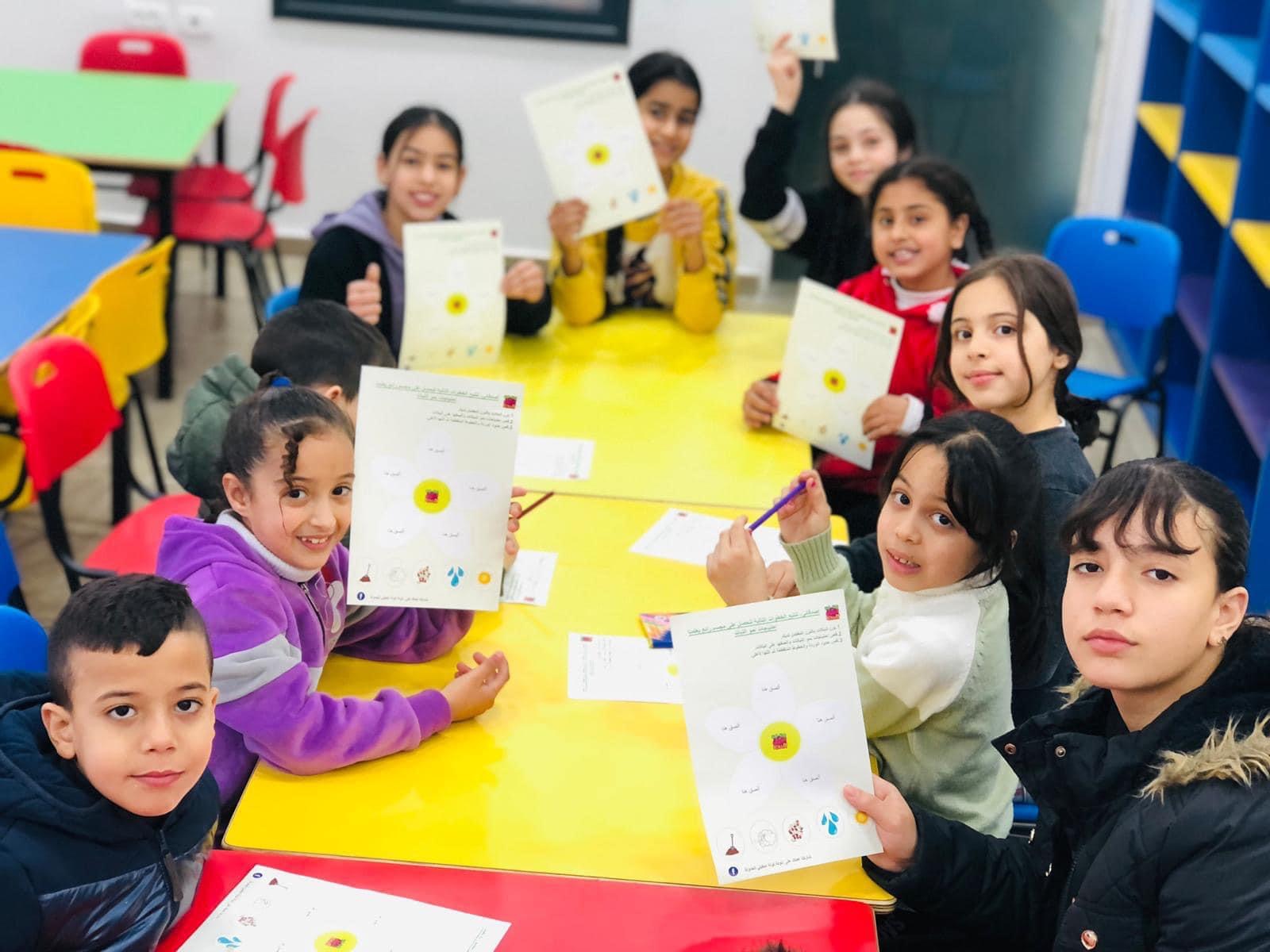by Burcu Mavis, Research and Data Analyst
A new library brings hope to the Palestinian community in Jerusalem
WADI AL-JOUZ, Jerusalem —Muna had set her heart on volunteering ever since she was a 21-year-old industrial engineering student. Her passion for volunteering hasn’t wavered over the years, taking up numerous volunteering positions, including at the Arab Innovation Network, an entirely volunteer-run initiative that supports young Arab innovators with internships, networking opportunities, and training.
Now 33 years old and a mother of three children, she is determined to pass on the gift of giving. “The spirit of volunteering and changing the community should start at a young age. Providing and giving something without expecting anything in return is something that I teach my children every day. I want my children to enjoy and feel safe in the community they live in.”
Muna and her family live among one of the most vulnerable and densely populated Palestinian communities in the Wadi Al-Jouz neighbourhood in East Jerusalem. It is home to 20,000 people, located in a restricted area, where the education system is underdeveloped. Children in the community lack access to quality education and a safe school environment because of policies and measures that prevent the expansion and upgrading of school facilities. This means that the schools in the Wadi Al-Jouz neighbourhood are also often overcrowded. Coming from families with fewer means and poor socioeconomic conditions, the children are isolated and disconnected from the other parts of the city, with little opportunity to travel.
Beyond that, the community faces an even greater challenge – an identity crisis. Living in a Palestinian community within Israeli municipal boundaries, children can speak Arabic at home and experience their Palestinian culture, but once they leave their houses, they do not have many possibilities for community meet-ups.
Volunteering is rooted in the family
“If we do not support our own community, no one will come and help us,” says Muna.
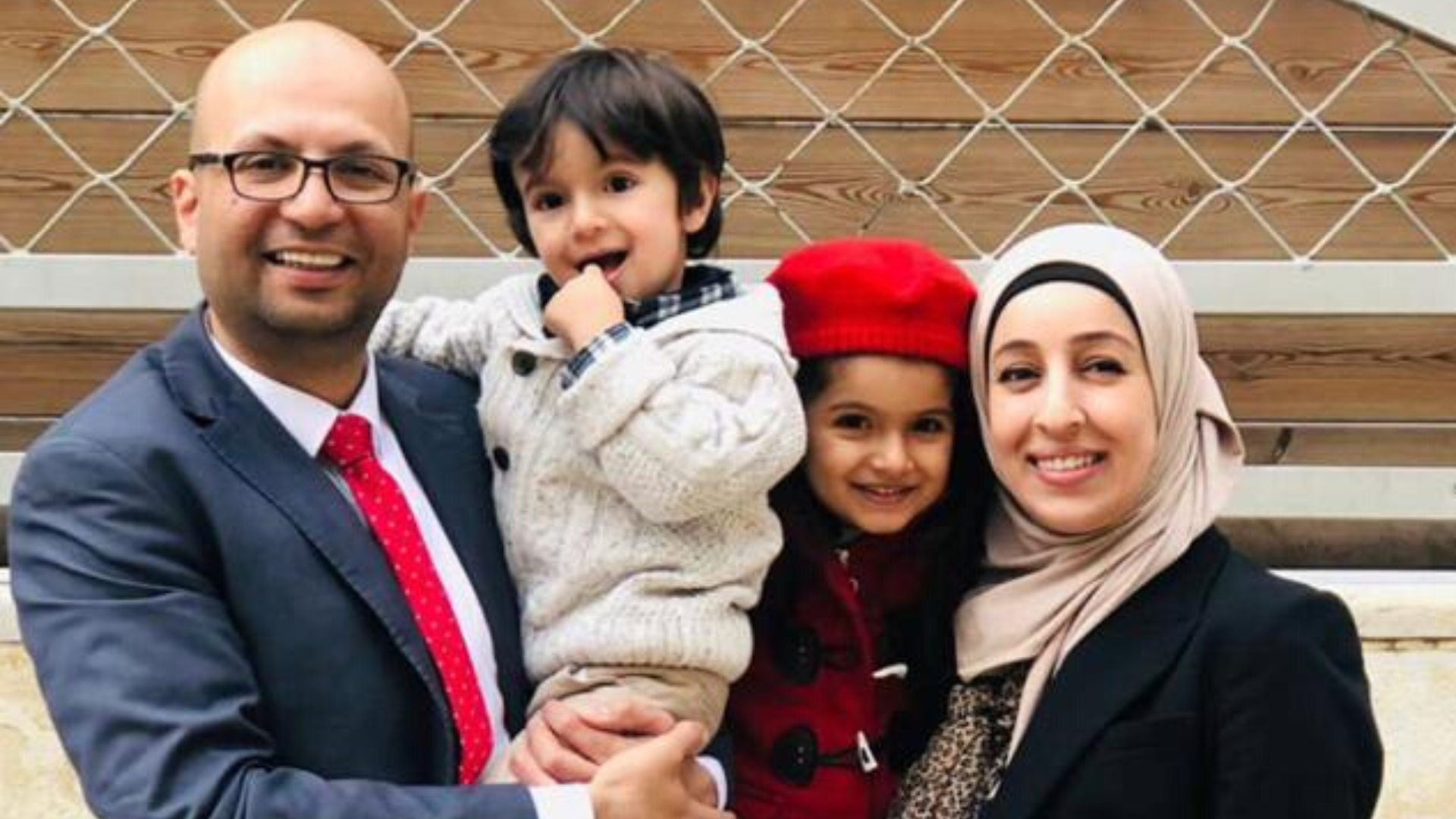
Muna, her husband Dia and their two children, Mousa (3 years old) and Raina (4 years old)
Muna is not the only one that is passionate about volunteering in her family. Her husband, Dia and his two friends, Suhail and Fadi, born and raised in the same community, founded the Wadi Al-Joz Charitable Society in 2014, which they run in their spare time.
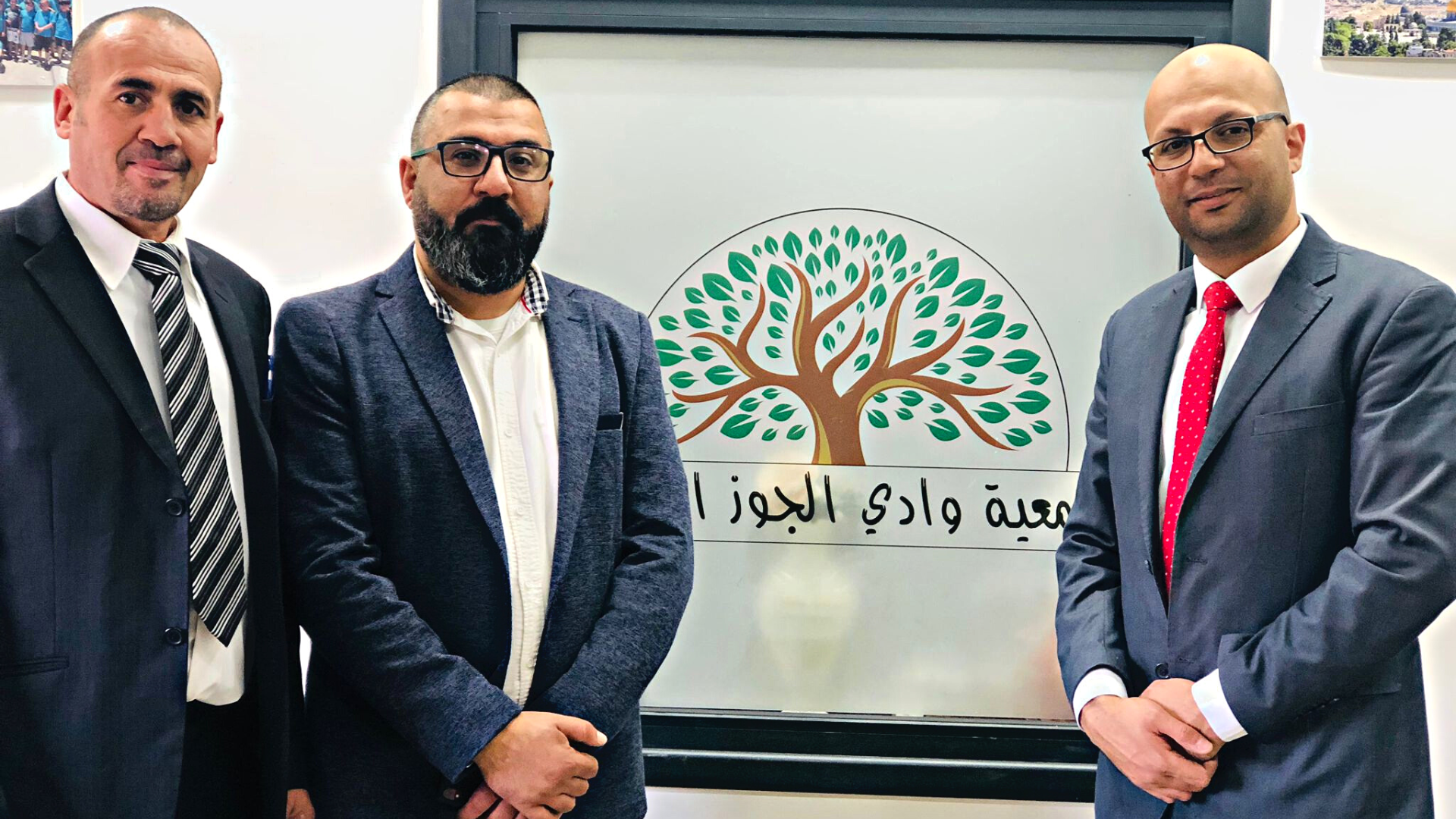
Suhail Natsheh, Fadi Mtour and Dia AlDin Husseini
The founders know the community’s struggles well having experienced similar challenges growing up in the neighbourhood. To address the people’s key needs, they first had to secure a physical space for their community activities. For that, they found a suitable community building, constructed in the early 1900s, whose then owners donated to the Islamic Waqf in 1935 to be used for religious or charitable purposes. Yet the building had been abandoned for many years.
Dia, Suhali and Fadi renovated the building to create a space for their community’s children, where they could feel safe, express their culture, and exchange knowledge.
The journey of the Wadi Al-Jouz community’s first library
On behalf of the Wadi Al-Joz Charitable Society, Muna joined the Tadamon Crowdfunding Academy in 2022, and supported the launch of their campaign to build the Al-Wadi library, the first one in the community.
After launching their campaign on LaunchGood, they managed to collect $5,000, which included community donations and a large donation from a Palestinian businessman. The funds raised were then used to reconstruct and renovate the premises, and furnish and equip the library with electronics, books, educational toys, and handcrafted materials.
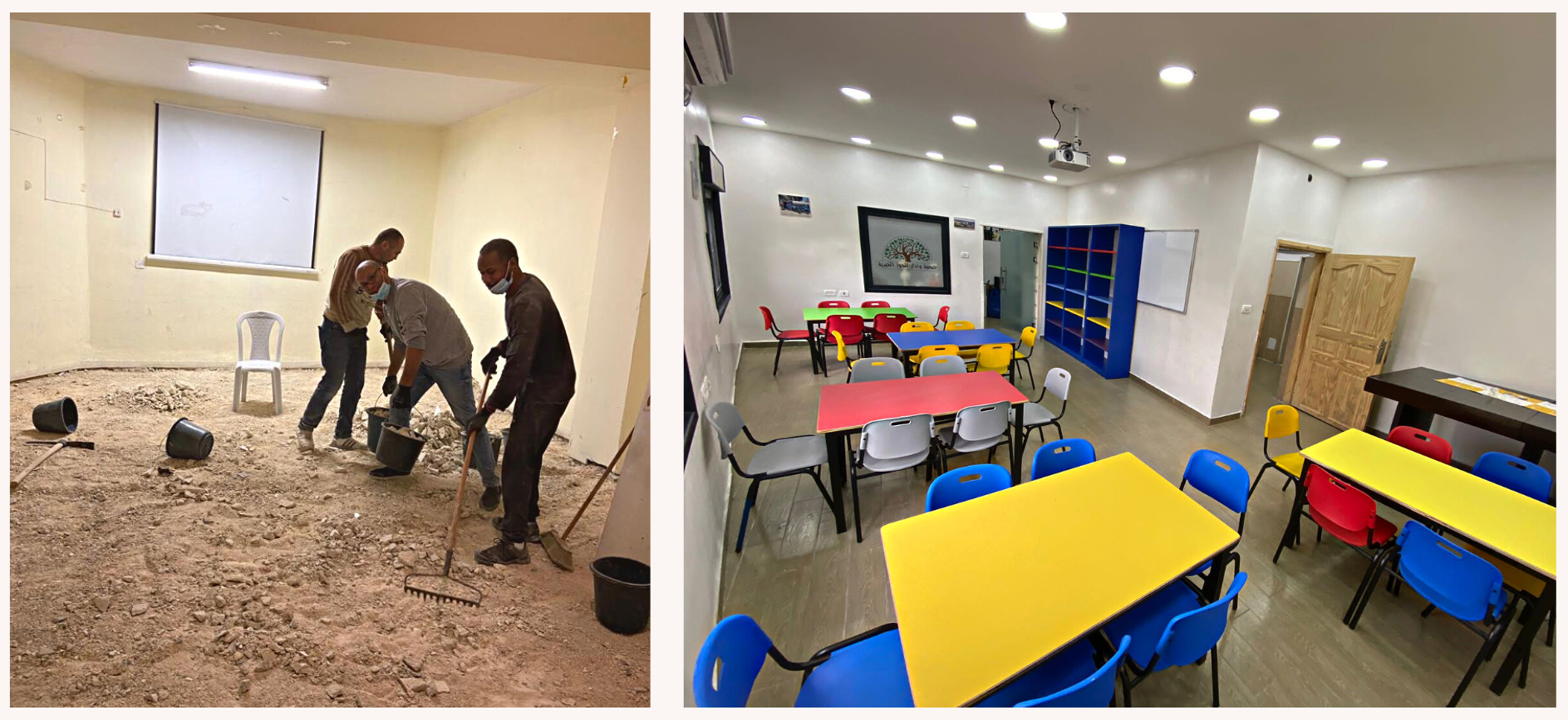
Before and after the reconstruction and renovation
They even hired an expert to advise on how to decorate the rooms so that the lighting, colours, and furniture is suitable for children. Additionally, local libraries contributed to the cause by providing books, and craft activity materials for children.
After they completed the renovations, the Al-Wadi Library opened their doors to the community. The children now visit the library to read books and join different activities, such as drama and art classes, movie screenings, and handicrafts.
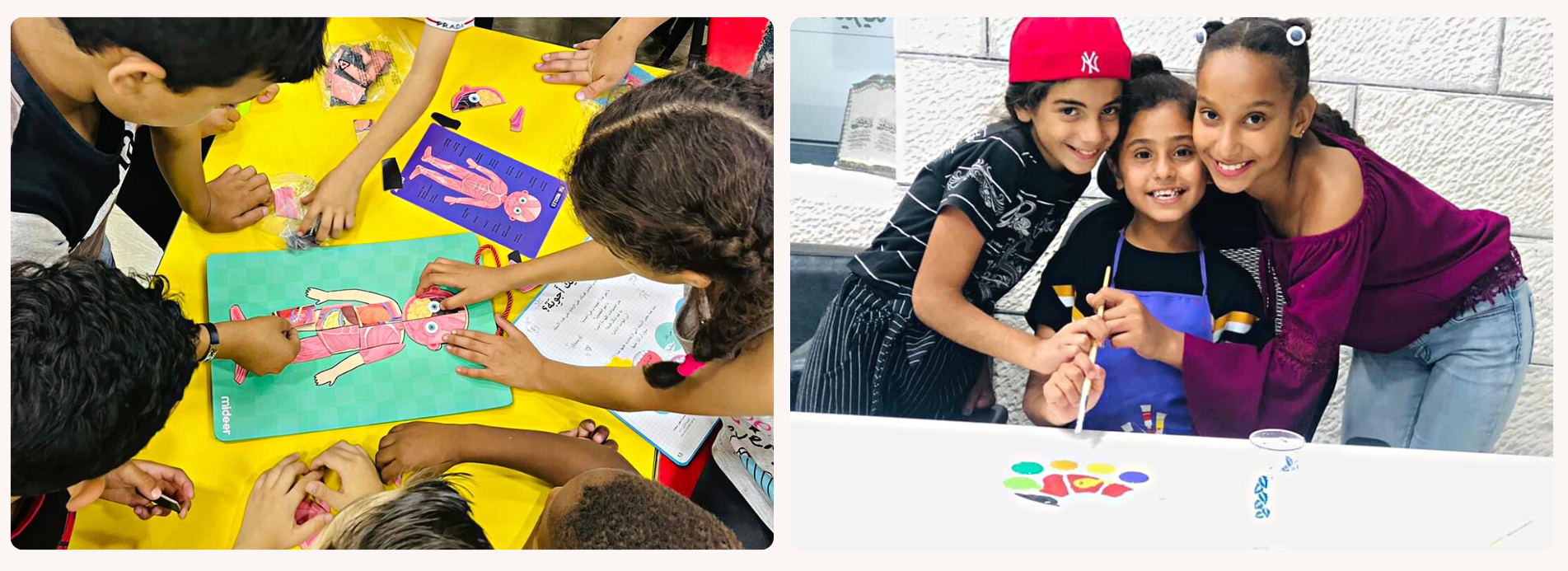
Activities with children
Muna and the other volunteers dream of hiring full-time workers that can organize, and facilitate workshops and activities. Currently, 40 children join per activity and the busiest time of the library is during the summer camp, which enrolls as many as 400. The library has also started to attract the children from the neighbouring communities. But even though they want to reach as many children as possible, for the moment they face budget constraints, which limit how many activities they run, how often they’re organized and participation.
The crucial role of parents
The role of parents in engaging children from the community is crucial. Some parents encourage their children to join the library’s activities, while others are not so keen to send their children to a place they know nothing about. Thus, Muna and the other volunteers spend a lot of their time raising awareness and encouraging parents to bring their children to the library to see what it is all about.
One of the parents, Mohammad, visits the library often, with his two children Seela (8) and Adam (7). A construction worker, he does not have a formal education. Yet, he wants to provide as much as he can to his children and secure a better future for them. One day, he approached Dia in the library to tell him: “There is finally a space for my children to improve their extracurricular courses. Before this library, there wasn’t any place that is close to where we live that my children could go to. I am thankful to you for providing this opportunity for my children.”
Mohammad is just one of the many examples of parents who see the immense value of the new library for growing their community.
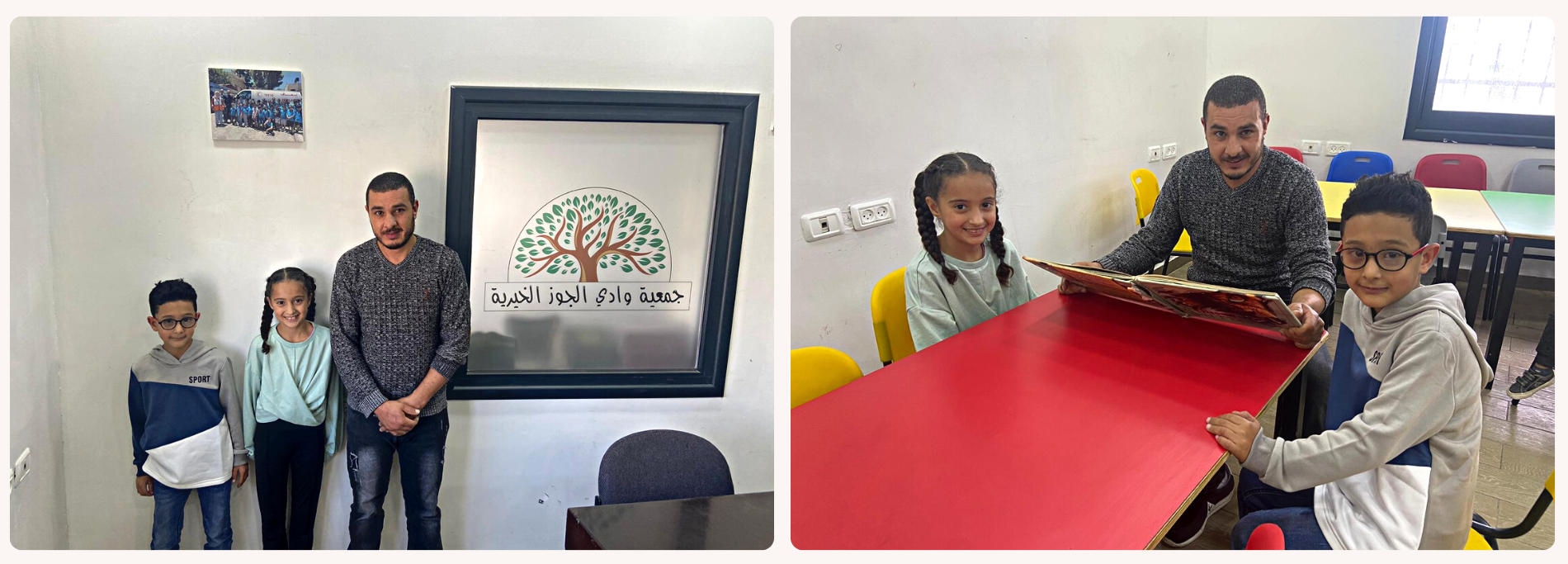
Mohammad and his two children, Seela and Adam
The drive to support your own community
The community needs support and the volunteers are at the heart of what keeps everything running. Muna, regardless of being a busy mother to three small children, goes to the library everyday to organize upcoming activities, and works with each child individually. “Muna uses her creativity in serving the children of the community with the same enthusiasm she has for her children at home,” says one of the volunteers.
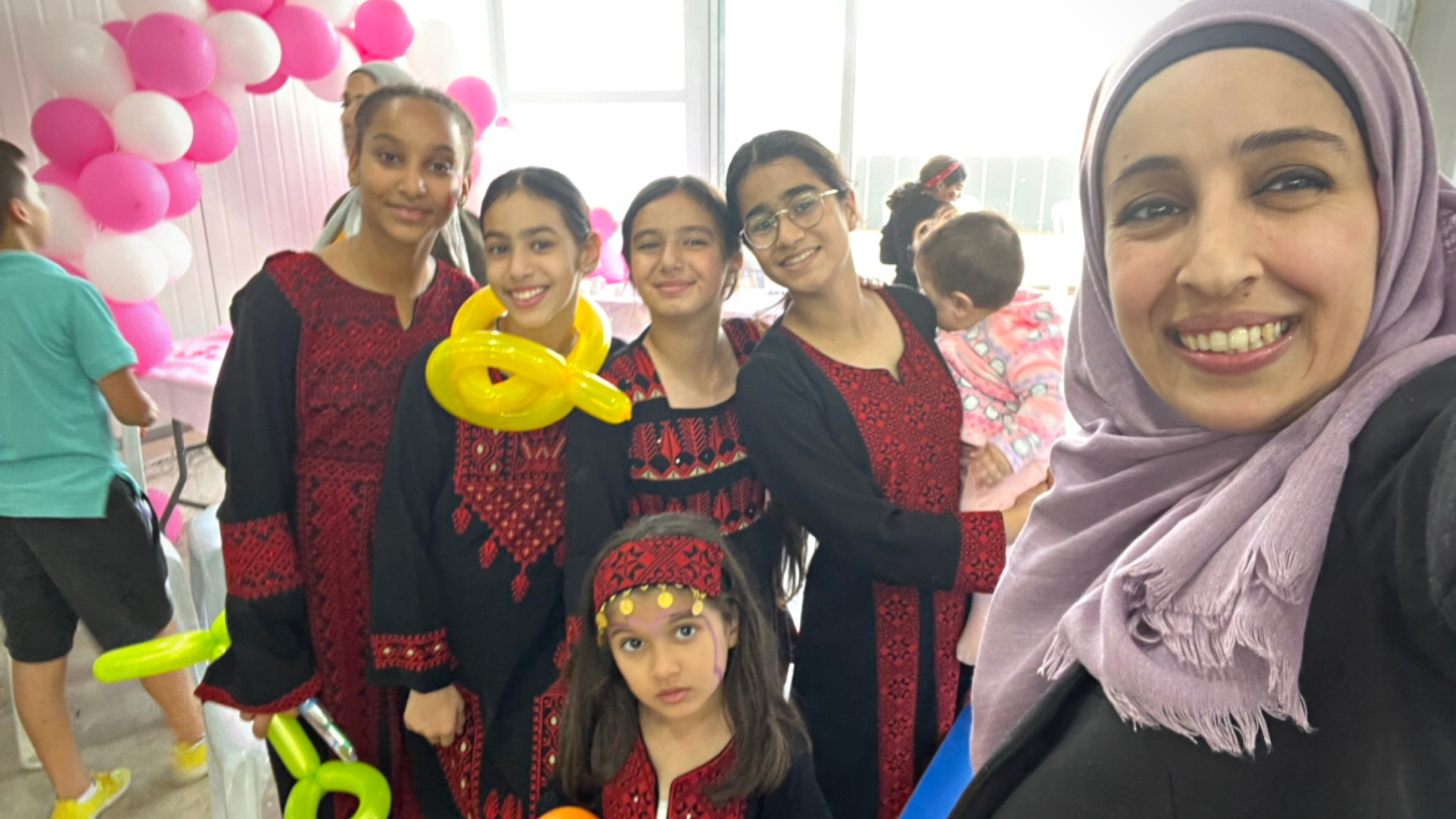
Muna and the children
When we ask Muna, what is her drive? She tells us: “I am part of the community. I have seen all these challenges first hand along with the other volunteers in the community. After becoming a mother, I realized that throughout my childhood and youth, there should have been more resources available for our primary upbringing. I wish we had been given this chance. For example, providing the children with the knowledge to make their own choices about what they like and what they would like to do instead of parents imposing their ideas on their children is just one of them. This way of upbringing opens the children’s horizons.”
Muna, the founders, the other volunteers and the parents in the community are hopeful for the future – the library is a safe place, where children can do what children should do: play, learn and grow.
Learn more about Wadi Al-Joz Charitable Society’s work and support them.
